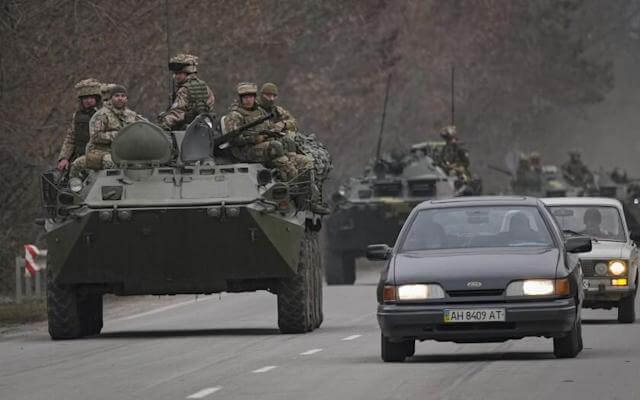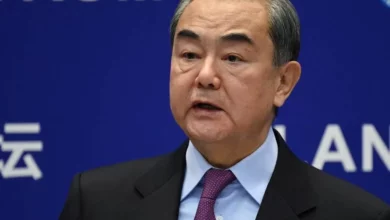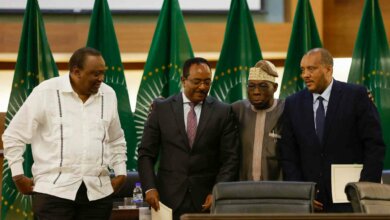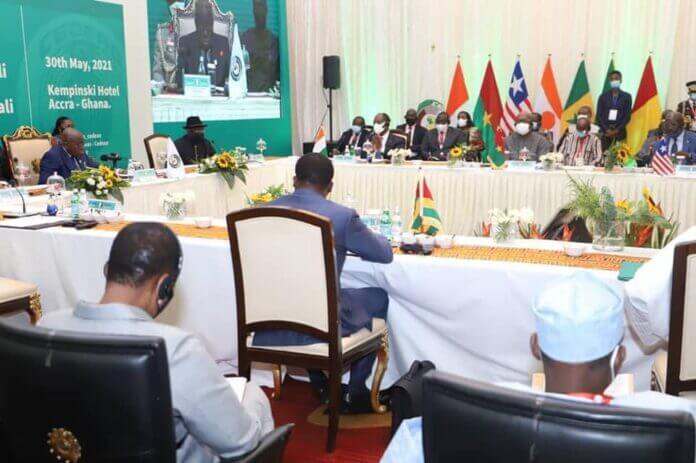Why Russia is Attacking Ukraine: Things you Need to Know

On Monday 21, 2022, Russian President, Vladimir Putin in a furious, hour-long national address asserted that Ukraine was traditionally part of Russia and never had traditions of its own independence.
Putin declared Donetsk and Luhansk, two breakaway territories in eastern Ukraine held by Moscow-backed separatists, independent, and ordered Russian soldiers to occupy the territory for “peacekeeping functions.” The decision effectively nullified the Minsk Ceasefire Deal, which was reached after Putin unlawfully invaded Crimea in 2014.
Following the order from Putin for a “special military operation,” Russian forces started a wide-ranging assault on Ukraine the day before, moving tanks across the border and bombing the country with airstrikes.
Putin urged Ukrainian forces to lay down their weapons and threatened retaliation against countries that meddle with Russia’s actions. NATO officials announced on Friday, February 25, that additional troops would be sent to Eastern Europe.
Read Also: How Africa is Affected by Russia’s Attack on Ukraine
What is Russia’s interest in Ukraine?
Russia considers Ukraine a part of Russia’s natural sphere of influence. The most of it was part of the Russian Empire for centuries, many Ukrainians are natural Russian speakers, and the country was a component of the Soviet Union until 1991, when it gained independence.
However, when a revolt in Ukraine in 2014 replaced the country’s Russia-friendly president with an unmistakably Western-oriented government, Russia was rattled.
The Russian president accused the United States and its allies of neglecting Russia’s demand that Ukraine should not be admitted to the North Atlantic Treaty Organization (NATO) – an intergovernmental military alliance between 27 European countries, 2 North American countries, and 1 Eurasian country. He believes the move will make Ukraine a NATO outpost bringing them to the doorstep of Russia and its allies – a move Russia considers a political jeopardy.
In Europe, the majority of former Soviet states and allies had already joined the European Union or NATO. The withdrawal of Ukraine from Russian control seemed to be the death knell for Russian hegemony in Eastern Europe.
Putin also claimed that the military action was required to defend residents in the separatist areas of Donetsk and Luhansk in a televised address on Thursday, February 24, before the assault. Moscow declared the districts in eastern Ukraine controlled by Moscow-backed separatists as autonomous republics this week.
The US however, claims that Russia’s actions are meant to serve as a pretext for a larger invasion, and that the scope of the attacks extends far beyond eastern Ukraine.
In 2014, in an article published by The Moscow Times, Putin claims Volodymyr Zelenskiy, Ukraine’s first Jewish president is running a “puppet regime” controlled by the United States and Europe.
“Key decisions are being made in Washington, and Berlin and Paris to some extent,” he said.
Mykhailo Podolyak, an adviser to Zelenskiy’s chief of staff, dismissed Putin’s claims of outside control as a “basic element of Russian propaganda,” accusing Russia of sending troops and arms to support the separatists.
“Ukraine is not just a neighboring country, they are a part of our culture,” Putin said in his televised speech before the military assault on Ukraine.
Zelensky claimed he requested a phone chat with Putin late Wednesday, February 23, 2022 in an attempt to negotiate, but received no response from the Kremlin.
Following the shun, Zelensky issued a stern warning to Russian citizens:
“The people of Ukraine and the government of Ukraine want peace,” President Volodymyr Zelenskyy said in an emotional overnight address to his nation in Russian. “But if we come under attack, if we face an attempt to take away our country, our freedom, our lives and lives of our children, we will defend ourselves. When you attack us, you will see our faces, not our backs.”
Read Also: African Union Condemns Russia’s Attack on Ukraine
What is U.S, Europe & NATO’s interest in Ukraine
Ukraine is not a member of either the EU or NATO. However, Europe and the United States provide significant financial and military support. Following Russia’s invasion, other former Soviet countries that are now members of the Western alliance, such as Estonia, Latvia, and Lithuania, may feel emboldened to ratchet up the pressure.
The war might potentially jeopardize the United States’ global influence. The United States established considerable power over the world order by winning the Cold War, but that influence has diminished in the last decade, and the Russian invasion may hasten that process.
Critics of the Biden administration claim that the administration’s efforts to limit American oil and gas output have hampered its ability to bargain with Russia, which supplies more than a third of Europe’s natural gas.
Because Russia’s economy is so reliant on natural gas supplies to Europe, Biden and European allies retain significant energy-related bargaining power with Moscow. According to one US government report, the Russian government generated about 30% of state revenue from fossil fuel businesses in 2020, including $40 billion in gas sales to Europe.
The pipeline that supplies many parts of Europe, Russian gas passes through Ukraine making the country a critical region in oil debate. While the United Kingdom imports only 4% of its gas from Russia, Germany imports 57% and Hungary, Lativa, Bosnia and Herzegovina, and North Macedonia imports 100%, demonstrating the power of the cards Moscow holds, with American investment bank Stifel recently warning that gas prices could quadruple if war breaks out as it has.
However, U.S Secretary of state, Antony Blinken, meanwhile moved to reassure Europe that the US would support its energy needs should any difficulties arise.
“We’re working together right now to protect Europe’s energy supply against supply shocks, including those that could result from further Russian aggression against Ukraine,” he said during a joint press conference with EU foreign policy chief Josep Borrell.
Mr Blinken said coordination efforts with allies and partners includes “how best to share energy reserves in the event that Russia turns off the spigot, or initiates a conflict that disrupts the flow of gas through Ukraine.”
Abeeb Lekan Sodiq is a Managing Editor & Writer at theafricandream.net. He’s as well a Graphics Designer and also known as Arakunrin Lekan.





